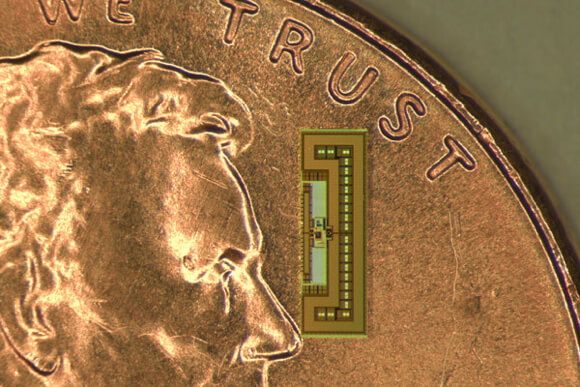Nov 10, 2014
New quantum camera capable of snapping photos of ‘ghosts’
Posted by Seb in category: quantum physics
By: Bryan Nelson — MNN

By: Bryan Nelson — MNN

MIT TECHNOLOGY REVIEW: Google ALSO Wants to Store Your Genome. For $25 a year, Google will keep a copy of any genome in the cloud. http://lnkd.in/dAjHdHj
POPULAR SCIENCE: Bionic Bird Drone May Fool Actual Birds. This biomimetic flying device can be controlled by a smartphone, to entertain people and cats alike. http://lnkd.in/d2Mcz9R
Written By: Jason Dorrier — Singularity Hub
Not long ago, robots were largely confined to books and movies. Then they started showing up on YouTube, and robot fear became a viral thing. There was that terrifying video of a Boston Dynamics robot wearing fatigues and gas mask. Another Boston Dynamics video showed a cheetah robot that could outpace the swiftest human sprinter.
Back then, it was easy enough to imagine being run down by a robot—particularly because Boston Dynamics was funded by the military. But there was no good reason to fear them. Not yet. Why? They were all powered by internal combustion engines. Imagine being stalked by a car with no muffler. You’d hear it a mile off and climb a tree.
Continue reading “Robot Cheetah Breaks Free of Its Tether, Now Runs on Batteries” »
NEW YORK TIMES: Home Depot Says Hackers Also Stole Email Addresses http://lnkd.in/dmDSkuK
NEW YORK TIMES: International Raids Target Sites Selling Contraband on the ‘Dark Web’ http://lnkd.in/dc2jZdC
BUSINESS STANDARD: 50% of occupations today will no longer exist in 2025: Report. Workspaces with row of desks will become completely redundant, not because they are not fit for purpose, but simply because that purpose no longer exists, the report predicts http://lnkd.in/dFyWwk2
Written By: Jason Dorrier — Singularity Hub

As a concept, the Internet of Things has been around for awhile. In theory, as chips get smaller and cheaper, we should be able to embed them in everyday items. Appliances, lighting, doors, climate control—all these things (and many more) get a chip and an internet connection. They can send data and receive commands.
In short, a world of dumb, inanimate objects wakes up to do our bidding.
Continue reading “Battery-Free Chip For the ‘Internet of Things’ That’s the Size of an Ant” »
Written By: David J. Hill — Singularity Hub
While computers scientists find new ways to supercharge computers, a team of plant scientists have demonstrated that they can supercharge a plant.
Hoping to speed up plant photosynthesis, researchers from the US and UK have successfully upgraded a carbon-fixing enzyme vital to photosynthesis in a tobacco plant with two enzymes from cyanobacteria, which function at a faster rate. If photosynthesis can be performed more efficiently, plants would grow larger and crops could have higher yields, possibly as high as 60% according to computer models.

The audio in this archive file was compiled from a 1984 meeting of futurists, transhumanists & progressives. The main topic of the meeting was the most appropriate ways to engage or advance these philosophies within government. For example, one significant point of discussion centered around whether running for office was an effective way to drive change.
The excerpts in this archive file collect many of futurist FM 2030’s thoughts over the course of the discussion.
About FM 2030: FM 2030 was at various points in his life, an Iranian Olympic basketball player, a diplomat, a university teacher, and a corporate consultant. He developed his views on transhumanism in the 1960s and evolved them over the next thirty-something years. He was placed in cryonic suspension July 8th, 2000.
Written By: Steven Kotler — Singularity Hub
Big Brother is feeling you—literally.
A few months back, I wrote about Ellie, the world’s first AI-psychologist. Developed by DARPA and researchers at USC’s Institute for Creative Technologies, Ellie is a diagnostic tool capable of reading 60 non-verbal cues a second—everything from eye-gaze to face tilt to voice tone—in the hopes of identifying the early warning signs of depressions and (part of the long term goal) stemming the rising tide of soldier suicide.
Continue reading “Big Brother Is Feeling You: The Global Impact Of AI-Driven Mental Health Care” »
